Parishes need to be organized to function on a daily or operational level. How are phone calls, emails, and office visits processed? Who handles the responsibilities for the various parish administrative and ministerial tasks? How are ministerial activities scheduled and coordinated throughout the year? Most parishes today, in addition to the pastor, have staff members who have been hired to assist with the ministerial responsibilities. All are hired for their skills, including some who may have extensive academic and professional training and experience. Those staff members who are responsible for specific areas of ministry make up the pastoral staff because they assist the pastor with responsibility for these important areas of mission. Other paid staff are often referred to as support, maintenance, or administrative staff because they provide direct assistance to pastoral staff members. These people make the parish operate effectively and efficiently on a daily basis.
Staff positions should correspond to the areas of the Church’s mission. For additional reference, look to Avery Cardinal Dulles’ Models of the Church. These are the areas of mission:
- Worship and Prayer
- Faith Formation and Evangelization
- Outreach to Those in Need
- Community Building and Communication
- Finance and Facility Administration
Dioceses and parishes use various titles and job descriptions for positions but all parish staff falls under these five areas. Not every parish provides staffing in each area.
Who is ultimately responsible for all the operations of the parish? Canon Law and common sense tell us it is the pastor. Effective pastors realized some time ago that serving a parish cannot be done alone especially if the membership is large. The question about leading a parish and planning for its operation as well as future comes down to “who has influence on the pastor?”
Decades ago, many church-goers would have suggested that the most influential person in the parish was the housekeeper. The housekeeper spent more time with the pastor than anyone and often interacted with more parishioners than the pastor himself. Housekeepers were adept at telling the pastor, “this is what the parishioners are thinking.” Every aspect of parish planning has a group of people who should be the “influencers.” Housekeepers have influence in household matters.
The influencers in daily and operational planning are the parish pastoral staff. There are voices in the church who suggest that pastors should choose a “leadership team” from people he deems to be leaders in the parish. Embrace the resources but not the concept. There are other ways for parishioners to become influencers through councils and committees or ministry teams. The most effective leadership team for a parish is a good pastoral staff. These are the professionals in ministry who often have experience working in other parish settings. They are the ones who should have the pastor’s ear when it comes to establishing daily and operational practices. Staffs should do all the things which leadership teams are asked to do but staffs are present on a daily basis. Staffs not only provide daily support and counsel, but are much better suited to assist the pastor with crisis or emergency situations.
What happens if a parish has no staff members? The easy answer is “very little.” Without a staff, a parish will struggle to adequately provide for a full range of ministries let alone offer them in a quality way. Parishes without staff should take the initiative to join with other parishes to share staff positions and ministries.
What happens if the staff has ten or more members? If a parish staff is going to be most helpful to a pastor, it needs to remain in the five-to-seven-member size. Ministries should be organized into departments or areas of ministries. The departments should have pastor’s staff level “leads” or directors who meet with him regularly and then also meet with those in their ministry areas. The areas of ministry should also include support staff or administrative assistants. There can be quarterly meetings of all the staff with the pastor which includes prayer and socializing.
Good organization in a parish allows for parishioners to have influence on parish ministries and the future direction of the parish through councils, committees, and ministry teams. The staff does not “run” the parish; they lead it in collaboration with the pastor. That is why councils and committees or ministry teams are not responsible for hiring or evaluating staff members. The staff is the pastor’s staff. The pastor undoubtedly wants parish assistance in the hiring and interview process but the final decision on hires rests with the pastor.
Next time, we will explore the role of the pastoral council and how that body can become more effective in leading your parish and planning for the future.

